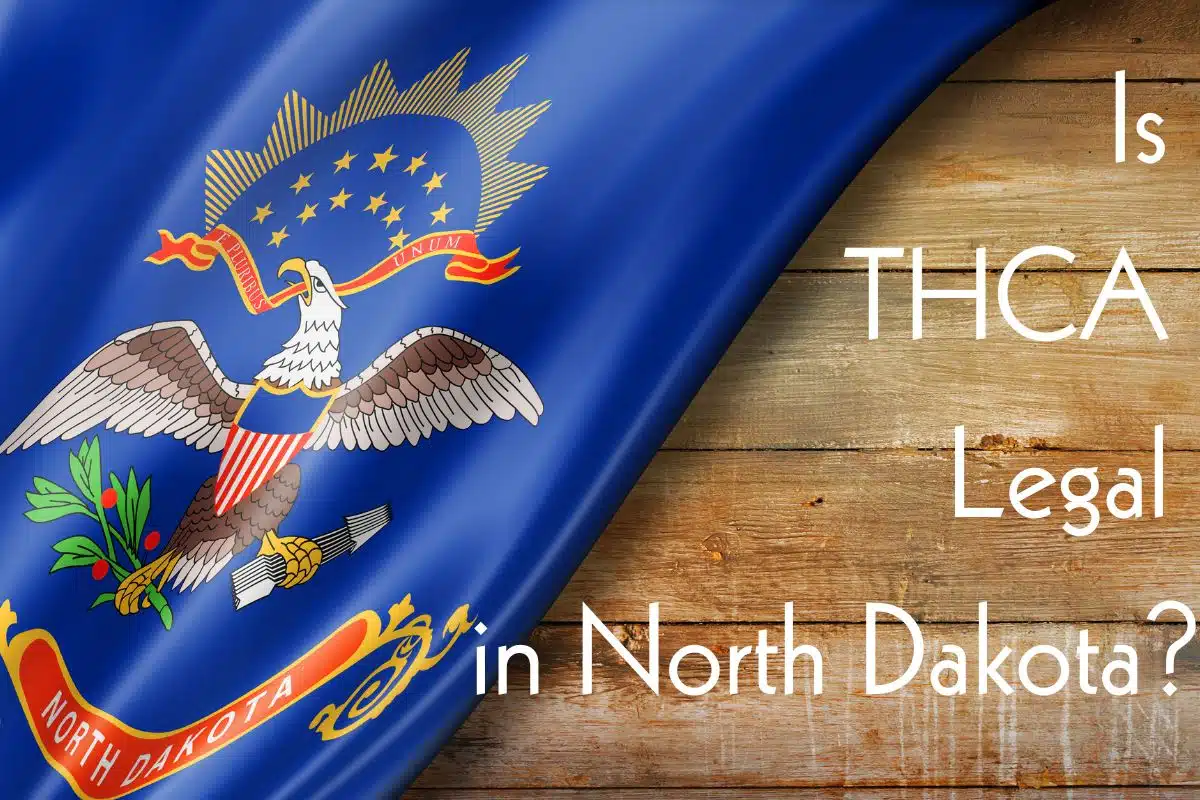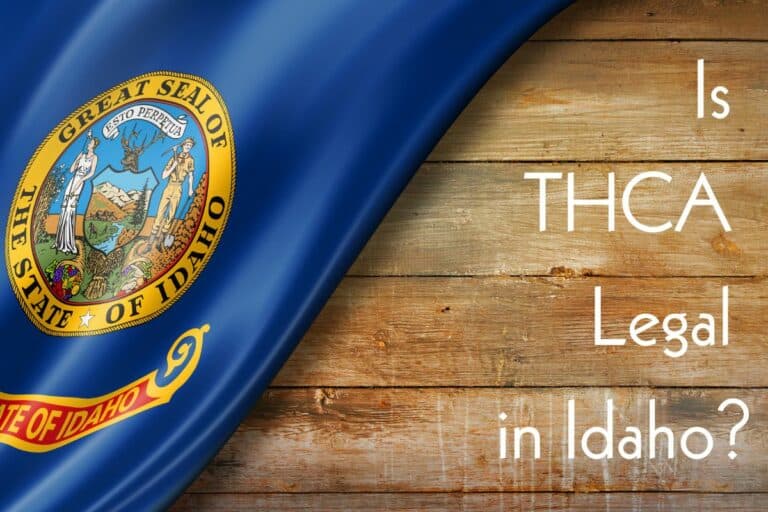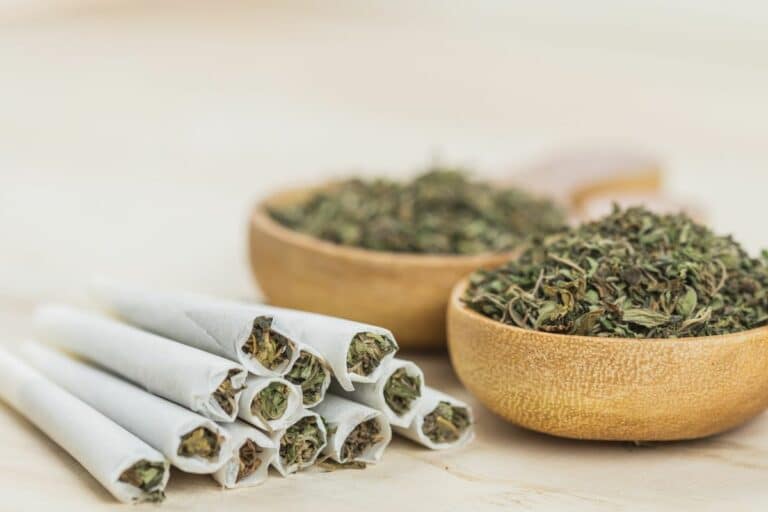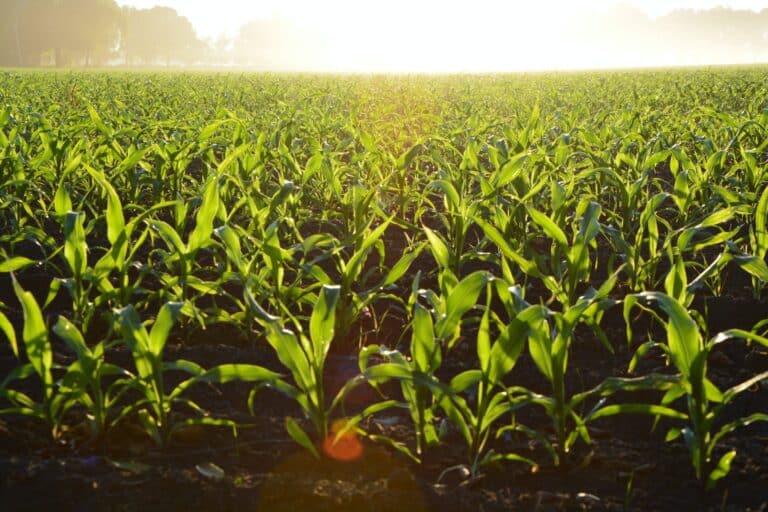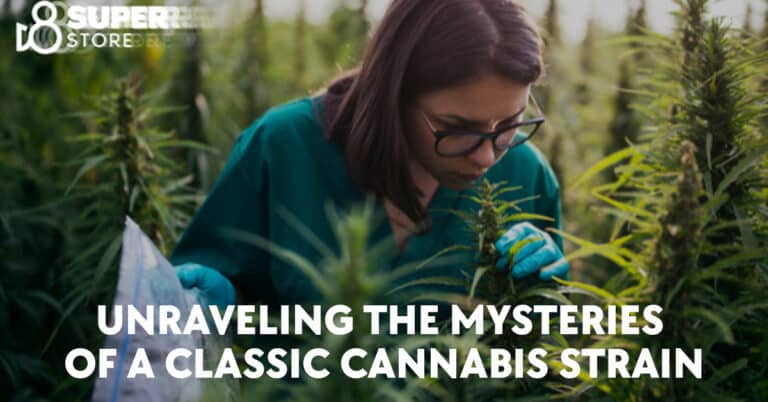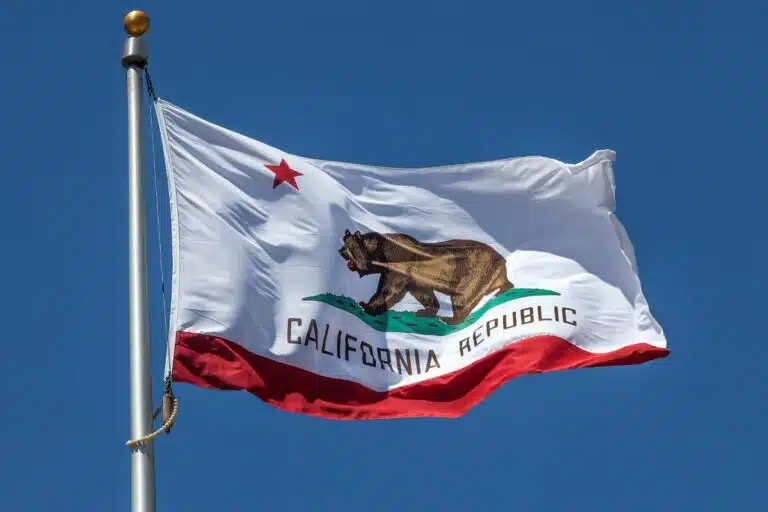Is THCa Legal in North Dakota: Understanding State Cannabis Laws
Jumping right into the world of North Dakota’s cannabis laws is a real brain teaser, kind of like cracking a secret code when we start talking about THCa’s legality. Picture THCa as the quiet family member of delta-9-tetrahydrocannabinol (THC), the magic ingredient in marijuana that sends you flying high. Navigating through the thick forest of federal rules and North Dakota’s own regulations feels like putting a puzzle together without the box cover. And trying to pin down what you can and can’t do in the realm of pot? It’s like tackling that puzzle with the lights off. But hold on, you’re about to uncover some tricks that’ll surprise even the slickest cannabis aficionados.
In North Dakota, the context of legality does not just revolve around the familiar THC but also extends to this lesser-known cannabinoid, THCa. The state’s legislative framework has evolved over time, responding to growing interest in hemp cultivation and the cannabis industry at large. It’s important for you to understand how these changes shape the current legal atmosphere surrounding THCa.
You may find it interesting that the legal threshold for THC content in hemp products has been the subject of much debate, with a common standard being a THC concentration of no more than 0.3% on a dry weight basis. However, this standard does not directly translate to how THCa is regulated, given that THCa can convert to THC through decarboxylation, a process that can occur naturally or be induced by heat. Understanding the nuances of these regulations in North Dakota will give you a clearer picture of the legal positioning of not just THCa but also the broader market for hemp and cannabis products.
THCa Overview

In this section, you’ll learn precisely what THCa is and how it differs from its well-known counterpart, THC. Understanding these compounds is crucial to grasp their legal status and effects.
Definition of THCa
Tetrahydrocannabinolic acid (THCa) is a non-psychoactive cannabinoid found in fresh and live cannabis. As the precursor to the psychoactive tetrahydrocannabinol (THC), THCa itself does not produce the “high” typically associated with cannabis consumption. Over time, or when exposed to heat, THCa is converted into THC, a process known as decarboxylation.
Comparison with THC
| Properties | THCa | THC |
| Psychoactive | No, THCa is not psychoactive. | Yes, THC is psychoactive. |
| Legal Status | Variable by jurisdiction; often less regulated. | Typically more strictly controlled. |
| Form & Availability | Found in raw cannabis plants. | Produced through decarboxylation, present in dried cannabis flowers and various products. |
| Health Effects | Studies suggest anti-inflammatory properties. | Euphoria, relaxation, altered perception; may also have medicinal benefits. |
Through decarboxylation, typically involving heat, THCa is transformed into THC, dramatically changing its effects and legal status. When you consume cannabis, whether through smoking or in the form of edibles, the heat from these processes converts THCa into the psychoactive THC, producing the effects associated with cannabis.
North Dakota Cannabis Laws
In North Dakota, your understanding of cannabis laws is crucial as they can influence medical use and distinguish between what constitutes legal and illegal activities.
Current Cannabis Legal Status
In North Dakota, the legal status of cannabis is bifurcated between medical and recreational uses. You can legally participate in the medical cannabis program, provided you comply with state-specific regulations. However, the recreational use of cannabis remains illegal. Possession, sale, or distribution of cannabis products outside of medical needs is subject to legal penalties.
Medical Cannabis Regulations
If you’re seeking medical cannabis, it is regulated under the North Dakota Compassionate Care Act. For qualifying patients, cannabis is accessible, but you must be registered with the North Dakota Department of Health. You’re allowed to possess up to 3 ounces of medical cannabis over a 14-day period. Additionally, certain non-smokable forms such as extracts, tinctures, and concentrates are also permissible within prescribed limits
- List of qualifying conditions:
- Cancer
- HIV/AIDS
- Hepatitis C
- ALS
- PTSD
- Others specified by the Department
Do take note that only state-licensed dispensaries can sell medical cannabis products to you, and you must follow all guidelines set forth by state law.
Recreational Cannabis Use
In North Dakota, recreational cannabis use is illegal. You may not possess, distribute, or cultivate cannabis for personal use without facing criminal charges. As laws are subject to change, you should stay informed about the current statutes to ensure you do not inadvertently violate state law.
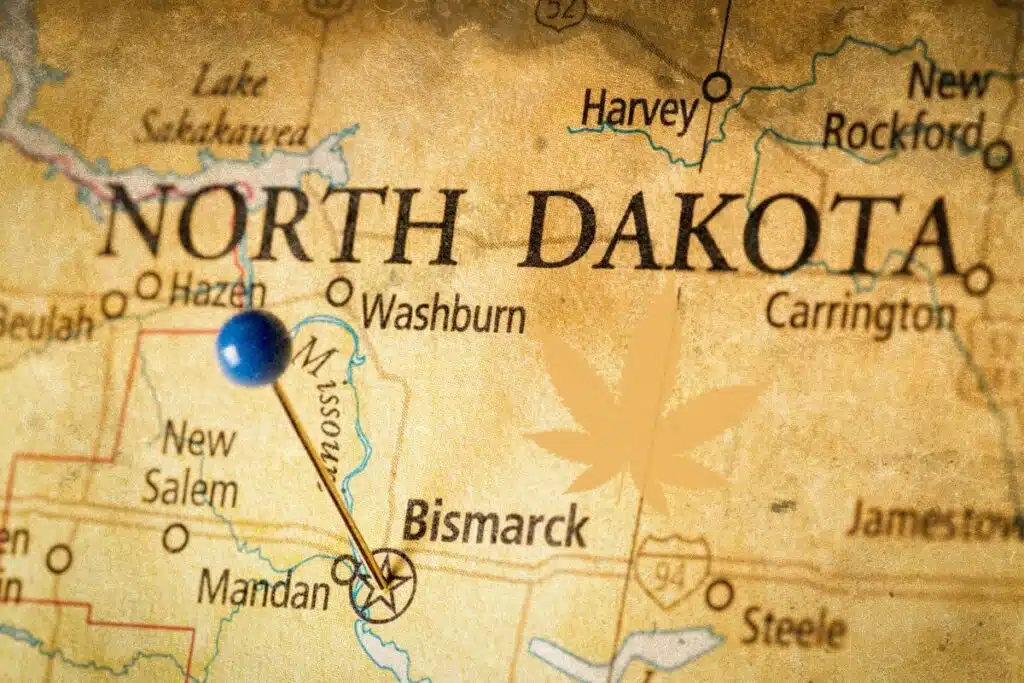
Legality of THCa in North Dakota
Understanding the legal landscape of tetrahydrocannabinolic acid (THCa) in North Dakota is essential since it determines what is permissible within the state borders. It’s important to acknowledge the differences between THCa and THC, as well as how state and federal laws interact.
THCa vs THC Legal Position
Tetrahydrocannabinolic acid (THCa) is a non-psychoactive precursor to delta-9-tetrahydrocannabinol (THC), the active compound in cannabis that produces psychoactive effects. In North Dakota, under state law, hemp-derived products, including those containing THCa, are legally permitted as long as they don’t convert into THC above a certain threshold upon consumption. You should know that the legal threshold is set at 0.3% THC (North Dakota hemp legislation). If the conversion of THCa to THC during storage or use exceeds this limit, the product could then be considered illegal under state law because it’s treated the same as THC, which is a controlled substance.
State vs Federal Perspective
The federal perspective on THCa is governed by the Controlled Substances Act wherein THC is classified as a Schedule I controlled substance. However, the legalization of hemp with less than 0.3% THC under the 2018 Farm Bill has created a distinction between hemp and marijuana based on THC content. The legality of hemp extends to THCa provided it is within the legally defined THC limit. At the state level in North Dakota, hemp cultivation is permitted, and products derived from hemp, including THCa, fall under the same legal status as long as they comply with the federal ruling of containing less than 0.3% THC. Should federal law be revisited, this could change the legal standing at a state level too. Remember that despite hemp being legal in most states, you should always ensure compliance with both federal and state law regarding cannabinoid products.
When it comes to staying within the legal parameters of THCa possession and use in North Dakota, you must keep up-to-date with the evolving state and federal legislation that directly impacts the legal status of THCa.
Possession and Use
In North Dakota, your understanding of THCa’s legal status hinges on the state’s stringent cannabis regulations. It is vital to be aware of what is allowed and what could lead to legal consequences.
Parameters of Legal Possession
North Dakota law currently does not allow the recreational use of cannabis products, including those containing THCa. Medical marijuana patients, however, are permitted to possess cannabis under specific conditions. If you are a registered patient, you may legally obtain and hold marijuana products with THCa, as long as you comply with the state’s medical marijuana program regulations. For instance, you’re required to keep any cannabis products in a labeled container that specifies it’s for medicinal use.
Restrictions on Use and Purchase
When it comes to the actual use of THCa, it’s essential to understand that only medical marijuana patients are allowed to consume cannabis products. To purchase these products, you must present your medical marijuana card at a state-sanctioned dispensary. Remember, any action outside the bounds of these regulations, such as purchasing from non-authorized vendors or attempting to use THCa products without being a medical patient, is illegal in North Dakota. It’s crucial for your safety and legal compliance to follow all state laws and regulations.
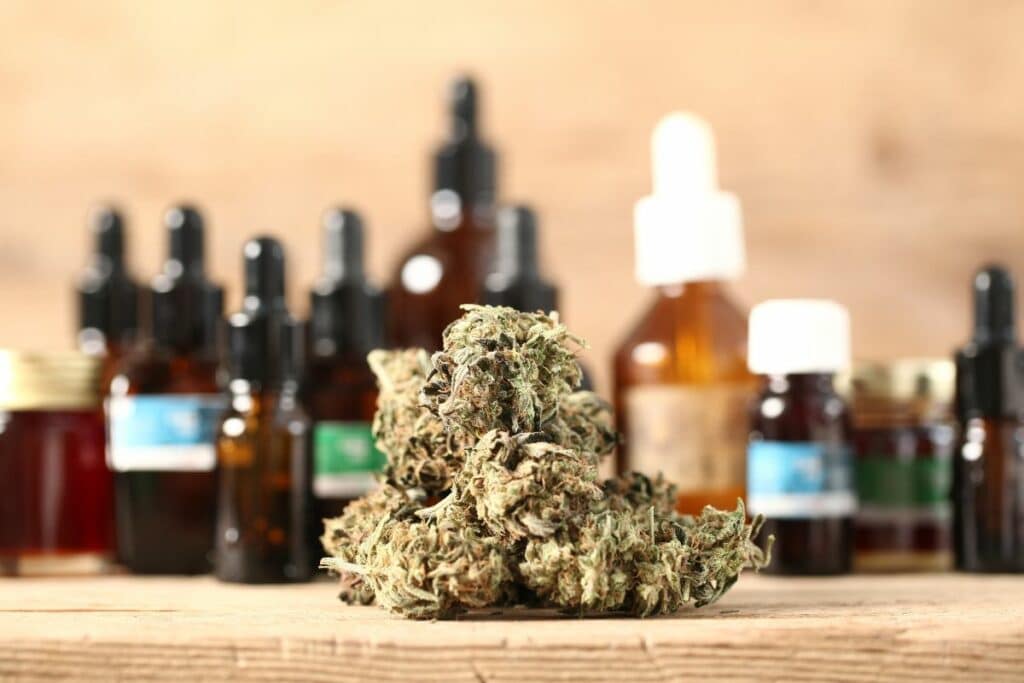
Availability of Hemp-Derived Products
In your exploration of hemp-derived products in North Dakota, you’ll uncover the distinctions between hemp and marijuana derivatives and the accessibility of THCa products.
Hemp vs Marijuana Derivatives
Hemp and marijuana are both members of the Cannabis plant family, but they are distinguished by their tetrahydrocannabinol (THC) content. By law, hemp must contain 0.3% or less THC on a dry weight basis, making most hemp-derived products legal for sale and consumption. Conversely, marijuana typically contains higher THC levels and is subject to different regulations.
THCa Products Accessibility
Even though THCa is a non-psychoactive precursor to THC, the legality of THCa products can often align with that of THC. In North Dakota, the focus has been primarily on delta-9-THC, making the availability of specifically THCa-focused products more nuanced. Hemp-derived products in the state must stay within the legal THC threshold to be considered lawful for sale.
Implications for Consumers
In North Dakota, your understanding of THCa’s legality and your responsibilities as a consumer are crucial, especially concerning its use, purchase, and potential benefits.
Understanding the Legal Landscape
When it comes to the legal status of THCa in North Dakota, you should be aware that the state has legalized the cultivation of hemp, which, by definition, contains a delta-9 THC concentration of not more than 0.3% on a dry weight basis. However, the legal framework becomes complex with THCa, a non-psychoactive precursor to THC. The conversion of THCa to THC through decarboxylation, which can occur during smoking, may legally change the status of a cannabis product. Thus, even if a product is compliant at the point of sale, the act of smoking could potentially lead to a concentration of THC beyond the legal threshold, implicating legal issues for possession and use.
Consumer Liability and Responsibilities
As a consumer in North Dakota, you are held responsible for not only the purchase but also the possession and use of cannabis products. You should be cautious, as possessing products with THC levels over the legal limit can result in fines or other legal consequences. Recreational use of marijuana remains illegal in the state; therefore, purchasing and using cannabis products marketed for their THCa content must be done with an understanding of the law. Adult consumers may legally buy and possess hemp-derived products that comply with state law, but any form of conversion to THC could place you at risk of violating drug laws.
Remember that understanding your liability and responsibilities is essential to navigate North Dakota’s cannabis regulations confidently and wisely.
Interstate Considerations
| State | North Dakota Marijuana Laws | Marijuana Laws in Neighboring States |
|---|---|---|
| North Dakota | Medical marijuana is legal with limitations; recreational use is illegal; decriminalization for small amounts | Minnesota: Medical marijuana is legal; discussions on adult-use legalization; South Dakota: Medical marijuana is legal; recreational use is legal; Montana: Medical and recreational marijuana are legal; |
| Minnesota | Medical marijuana is legal; discussions on adult-use legalization | North Dakota: Medical marijuana is legal with limitations; recreational use is illegal; South Dakota: Medical marijuana is legal; recreational use is legal; Montana: Medical and recreational marijuana are legal; |
| South Dakota | Medical and recreational marijuana are legal | North Dakota: Medical marijuana is legal with limitations; recreational use is illegal; Minnesota: Medical marijuana is legal; discussions on adult-use legalization; Montana: Medical and recreational marijuana are legal; |
| Montana | Medical and recreational marijuana are legal | North Dakota: Medical marijuana is legal with limitations; recreational use is illegal; Minnesota: Medical marijuana is legal; discussions on adult-use legalization; South Dakota: Medical marijuana is legal; recreational use is legal; |
When considering the legality of THCa in North Dakota, you must also be aware of how this intersects with laws in other states and federal regulations, especially if it involves crossing state lines.
Comparative State Laws
Different states adopt varying legal frameworks for cannabis and its derivatives like THCa. For instance, while North Dakota has legalized the cultivation of hemp and sets limits on THC content, Michigan, New York, and Washington have broader legal allowances for marijuana, which may include higher THC thresholds. South Dakota’s status for legal recreational use is currently pending, which could influence the legal landscape around THCa in neighboring North Dakota.
On the other hand, Iowa and Mississippi have more restrictive laws regarding cannabis products, and transporting THCa into these states could have legal implications. States like Nevada, however, have more permissive laws surrounding marijuana, aligning more closely with those of North Dakota with respect to cannabis regulation.
Impact of Federal Regulations on Interstate Commerce
Federal regulations have a significant impact on the movement of THCa across state lines. The USDA Final Rule specifies compliance based on total potential THC, creating a uniform standard across the United States. This affects how states like North Dakota navigate the interstate commerce of cannabis products. If federal law changes or interstate commerce becomes legal for marijuana, this could greatly affect current state-by-state discrepancies, potentially simplifying the logistical challenges of businesses operating in multiple states.
Emerging Cannabinoid Markets
You are witnessing rapid changes in the cannabinoid market, primarily driven by evolving legislation and consumer demand. Let’s explore how the recent Farm Bill has influenced cannabinoids and the trends in cannabinoid product offerings.
Influence of the Farm Bill on Cannabinoids
The 2018 Farm Bill was a watershed moment for the cannabinoid industry. It federally legalized hemp, defined as cannabis with a delta-9 THC concentration of 0.3% or less on a dry weight basis. This legalization opened the doors for a surge in hemp-derived products, including those containing cannabinoids like CBD and THCa. In states like North Dakota, where industrial hemp cultivation has been permitted, businesses are exploring the market potential of various cannabinoids, now distanced from the legal restrictions applied to marijuana.
Trends in Cannabinoid Product Offerings
In response to the Farm Bill’s influence, the cannabinoid product market has diversified. You’ll find a growing array of products, including extracts, tinctures, and edibles. Innovative cannabinoids like Delta-8 and Delta-9 THC have entered the market, often marketed for their less potent psychoactive effects compared to traditional Delta-9 THC found in marijuana. However, the legality of these compounds can vary by state, and North Dakota’s stance includes specific regulations that businesses and consumers must navigate. Keep an eye on these products as they respond to and shape the future of the emerging cannabinoid market.
Frequently Asked Questions
Understanding the legal status of THCa in North Dakota is crucial for ensuring compliance with state laws. This section addresses common inquiries pertaining to THCa and its legality within the state.
What is the legal status of THCa in North Dakota?
In North Dakota, THCa is regulated under the state’s controlled substances laws. Since THCa is a precursor of THC, the psychoactive component in cannabis, it falls under the same legal scrutiny. If THCa is detected in a concentration that could potentially convert to THC levels above the legal limit, it may be deemed illegal.
Are there any legal distinctions between THCa and THC under North Dakota law?
Under North Dakota law, both THCa and THC are considered controlled substances. However, the distinction lies in their psychoactive properties; THCa is not psychoactive unless decarboxylated, which means it needs to be heated to convert into THC, the psychoactive compound. Despite this, North Dakota does not differentiate between them in the context of legality.
Can possession of THCa lead to prosecution in North Dakota?
Yes, possession of THCa can lead to prosecution in North Dakota if it is in a form that violates the state’s cannabis laws. Like THC, THCa is subject to drug enforcement and possession could result in legal consequences.
How does the legality of THCa in North Dakota compare to other states?
The legality of THCa can vary widely from state to state. Some states may have more permissive laws regarding cannabis and its derivatives, including THCa. In North Dakota, however, the laws around cannabis and its precursors, like THCa, align more closely with federal regulations which maintain stricter controls.
What are the potential consequences of using THCa products in North Dakota?
The consequences of using THCa products in North Dakota can range from fines to incarceration. The severity of penalties typically depends on the amount of substance in possession and whether it’s intended for personal use or distribution.
Has there been recent legislation regarding THCa in North Dakota?
For the most current and precise updates on legislation regarding THCa in North Dakota, it is advised to consult state government resources or legal experts. The legal landscape can change, and recent developments may influence the regulation of THCa in the state.

